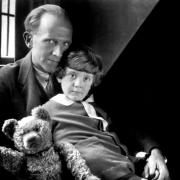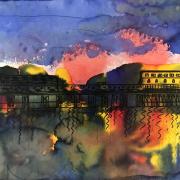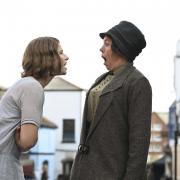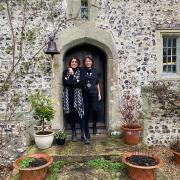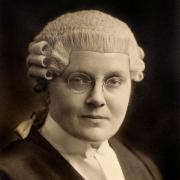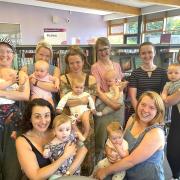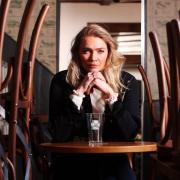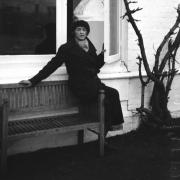In her debut novel Worthing-based author Kate Morrison challenges our assumptions about people of colour in Tudor Britain, finds Simone Hellyer
Historic novels often only feature black people in the roles of slaves or servants, but that does not reflect the multi-faceted history and culture of people of colour in England. This wrong is something that Worthing-based writer and history enthusiast Kate Morrison aims to right in her debut novel, A Book of Secrets.
The novel is set in Tudor England, one of Kate's favourite historic periods, and tells the story of Susan Charlwood, a young girl taken from Ghana (then known as Guinea) as a baby by Portuguese slavers. Brought to England, she grows up as maidservant in a wealthy Catholic household at a time when being a Catholic was an act of resistance.
When her mistress dies Susan is married off to a London printer who is deeply involved in the Catholic resistance. She then finds herself embroiled in political and religious intrigue, all while trying to find her lost brother and discover the truth about her origins.
After studying renaissance literature, Kate moved to Brixton and developed the initial idea for the novel after a chance conversation with her neighbour, a Nigerian actor. "One day I was chatting to him about the book and he suggested that if I was going to write historical fiction that I should put some black people in it because black people have been here since Roman times and you just never see that reflected in TV period dramas or in books," she says.
It came as a surprise to me, probably due to my terrible knowledge of history, that people of colour were not always marginalised in Tudor society. In the novel, Susan is raised almost as one of the family, marries a white man and eventually runs his printing business. "We just don't learn about this stuff in schools," Kate says, adding: "That particular period in history pre-dates Britain's involvement in the transatlantic slave trade. Britain didn't get heavily involved in the slave trade until the mid to late 17th century - not because we were any nicer than the Spanish and Portuguese who were heavily involved, but because we just couldn't break into it.
"What you find at this time is that there is definitely still discrimination in England, but there isn't so much of the sense of superiority and inferiority or dehumanisation that you get during the slave trade. And, among other things, this is shown in the records of people marrying and being employed as servants."
In total it took Kate 15 years to finish the book, partly because she didn't know how to access the research. One big help was historian Miranda Kauffmann, author of Black Tudors: The Untold Story, with whom Kate communicated while writing the book. Because of online advances there is also a lot more archival information available now than there was when Kate started writing.
"The information is sometimes miniscule, like in one 1588 register of a burial from the Guildhall library archive it just said 'a man blackamore laye in the street' with no information about who he is or where he is from. But sometimes there is a lot more detail in the records, like a Morisco girl called Mary Phillis who was working for a seamstress and was christened in 1597, and there was a man who was working for an aristocrat and was buried using 'the best cloth', which shows that he was a valued servant.
"You don't get a sense of how people were thinking or feeling about ending up in England, but you do get some details and facts about the lives they were living that you can then build around," she explains.
As a white author, Kate also felt that it was important to listen to the real life experiences and perspectives of people of colour in modern times. In particular, she spoke to Esua Goldsmith, whose memoir will be published next year by Kate's publishers, about what it was like to grow up as a mixed heritage British-Ghanaian girl in 1970s England and what it meant to find her Fante kin and roots.
"You're never going to know how it felt to be a 16th century woman, but there are connections that are the same - like the emotions that people feel when they are a visible minority in a country that can often feel hostile," Kate says.
The novel also explores the fraught religious politics at the time and details the workings of the clandestine Catholic printing presses that secretly distributed illegal material. To research this Kate went to the Bodleian Library for a tutorial on its printing press to experience how difficult it was to produce printed material back then.
Despite the time it took to complete the novel, Kate has not been put off historic fiction and plans to continue to focus on the lives of ordinary working women in
Tudor times, saying: "I'm interested in the assumptions of historical periods that turn out not to be true because it feeds into our understanding of not only the past, but the present too."
A Book of Secrets is published by Jacaranda Books; RRP £16.99
More…
- Jessica Hynes on making her directorial debut with 'The Fight' - As her directorial debut The Fight comes out on DVD, BAFTA-winning actor and writer Jessica Hynes explains why she owes her career to growing up in Brighton




